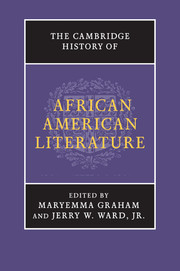Introduction
Published online by Cambridge University Press: 28 May 2011
Summary
In the twenty-first century, literary histories may achieve a limited degree of comprehensiveness in dealing with a vast amount of literary and cultural data; the idea that they might be definitive is merely tantalizing. We are cautioned to remember, as Mario J. Valdés and Linda Hutcheon have suggested in Rethinking Literary History: A Dialogue on Theory, that “the literary past” – that is, the past of both literature's production and its reception – is unavoidably interpreted in the light of the present and that literary historians create meaning by ordering and shaping stories about texts and contexts; in short, “economic, political, and broader cultural and social perspectives on issues like race or gender must be brought to bear in the constructing of any literary history today in a different way than in the past.” These premises about writing history assume great importance in a project that focuses on the continuing evolution of African American literature, because the subject is intimately related to such matters as the slave trade and the curious institution of slavery in the United States; the forced merger of African ethnic groups into an identity named African American; new forms of verbal expression which are the consequence of contact among Africans, indigenous peoples, and Europeans; struggles for emancipation and literacy; race as a social dynamic, and the changing ideologies that support the American democratic experiment. The writing of literary history, of course, must cross disciplinary boundaries, for it cannot otherwise provide nuanced reports on the indeterminacy of texts.
- Type
- Chapter
- Information
- The Cambridge History of African American Literature , pp. 1 - 18Publisher: Cambridge University PressPrint publication year: 2011



